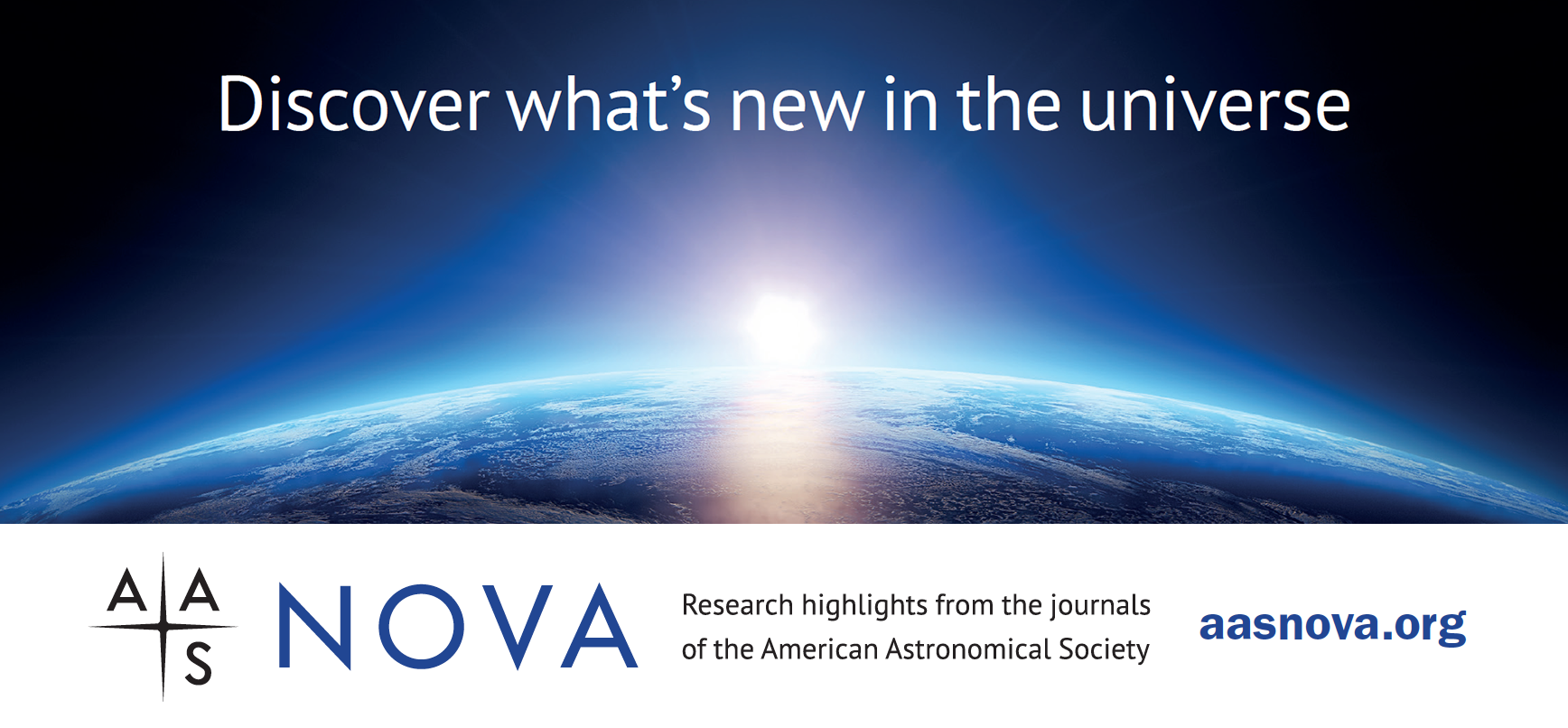Highlights from AAS Nova: 3–16 September 2023

Kerry Hensley American Astronomical Society (AAS)
AAS Nova provides brief highlights of recently published articles from the AAS journals, i.e., The Astronomical Journal (AJ), The Astrophysical Journal (ApJ), ApJ Letters, ApJ Supplements, The Planetary Science Journal, and Research Notes of the AAS. The website's intent is to gain broader exposure for AAS authors and to provide astronomy researchers and enthusiasts with summaries of recent, interesting research across a wide range of astronomical fields.

The following are the AAS Nova highlights from the past two weeks; follow the links to read more, or visit AAS Nova for more posts.
15 September 2023
A New Class of Fast Transients Has Emerged in an Unlikely Place
Quiescent elliptical galaxies might harbor a new class of rare transients called luminous fast coolers, the physical origins of which remain unknown.
13 September 2023
First Detection of a Glycine Isomer in the Interstellar Medium
Researchers have detected glycolamide, a chemical cousin to the simplest amino acid necessary for life on Earth, in the interstellar medium for the first time.
12 September 2023
Type II Solar Radio Bursts and You
Astrobites reports on an interesting case of a solar radio burst occurring under unusual conditions.
11 September 2023
Featured Image: Minor Planet Vesta Gets a New Map
Researchers have mapped the surface of one of the largest objects in the asteroid belt, using a technique that marries different data types into one visualization.
8 September 2023
Lonely Neutrinos: IceCube’s First Population Limits
By the time you finish this sentence, trillions of neutrinos will have passed harmlessly through your body. But where are all of them coming from? Astronomers still aren’t sure, but they’re starting to put limits on the answer.
6 September 2023
Sandy, Briny Water on Mars Has a Better Chance of Remaining Liquid
Lab experiments show that mixing Martian surface material into briny liquid helps water remain a liquid under colder, drier conditions.
5 September 2023
Twinkle, Twinkle, Trail of Stars, How I Wonder What You Are
Astrobites reports on a mysterious stellar streak — could it be a wake left behind by a rogue black hole, or is it something else entirely?


